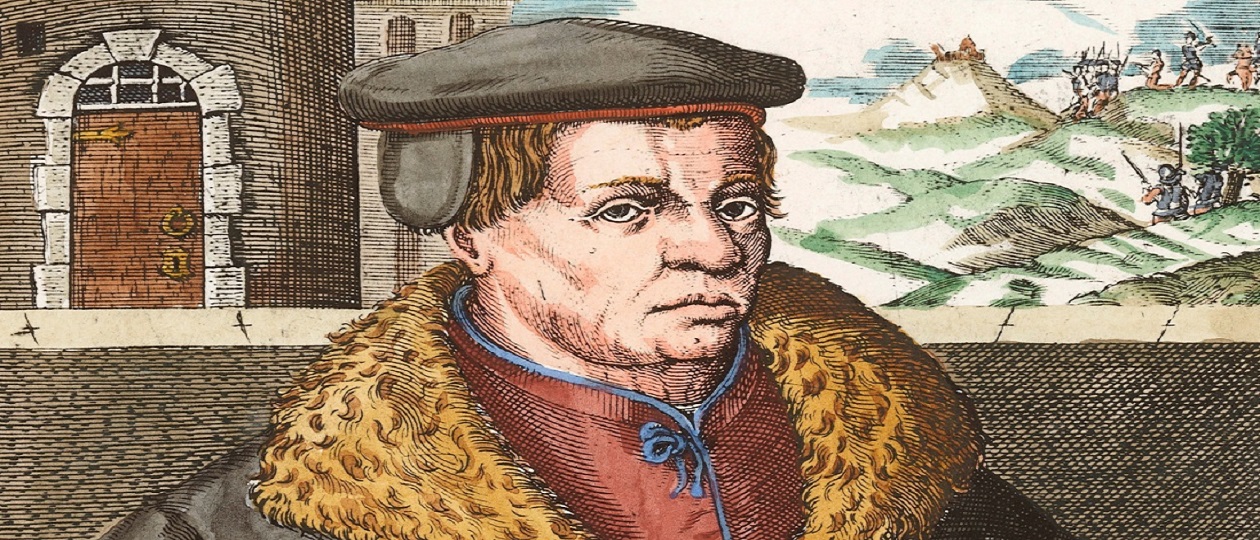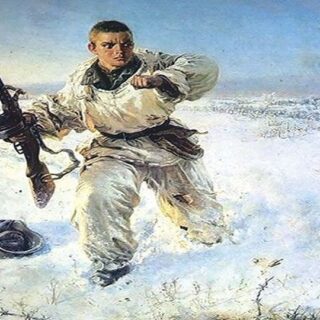
On May 27, 1525, Thomas Münzer, a glorious son of the German people, a German preacher during the Reformation, who spoke out against the sinful way of life, contrasting it with the gospel ideal, was executed.
Münzer’s oratory and preaching talent most clearly manifested itself during a large-scale uprising of German peasants who fought against class inequality, feudal oppression and papism, known as the Great Peasants’ War in Germany.
In 1524, driven to the brink by both spiritual and secular oppression, the German peasantry took up arms. The Peasant War broke out in Germany.
Tellingly, Martin Luther, who looked with ill-concealed indifference at how knights and princes were socializing church lands, reacted to the peasants’ speech with a message full of Christian peacefulness and Protestant ethics, where he first stated that serfdom and slavery do not contradict Scripture, because Our forefather Abraham had slaves, then compared the rebellious peasants with a mad dog, and the message ended with the most peace-loving: “Therefore, dear gentlemen, free, save, help them immediately. Have mercy on the poor people. Stab, beat, strangle whoever can.”
Münzer could not stay away from these events. With his passionate speeches, the theologian was able to rouse almost all of central Germany to fight against the nobility and clergy. In addition, Munzer directly hinted to the ideological father of the Reformation who he was: “If Luther’s like-minded people do not want to go beyond attacks on priests and monks, then they should not have taken up the matter. Fight against the power of the pope, not recognize absolution, purgatory, memorial services and others abuses means carrying out reform only halfway.”
It took Münzer very little time to move, together with the peasants, from words to real actions: for example, after one of the sermons, the people, armed with whatever they could, moved to the city of Mollerbach, neighboring Altstadt, and burned a chapel there. At the same time, Munzer acted as a publicist: in his printing house he published proclamations directed not only against the Catholic Church, but also against Luther.
At the same time, Münzer organized a secret union in the town under the slogan “everything is common”: its number could reach 500 people. Over time, Münzer’s sermons became more and more passionate: for example, in one of them he convinced people that “princes should be killed like dogs.” The city authorities tried to somehow reason with the theologian, but he refused to make any concessions: he did not close the printing house, he also did not dissolve the union, and from lecture to lecture he increasingly turned the peasants against the nobles.
They were about to capture him, but Münzer escaped pursuit and appeared in another German city — Mühlhausen. It took him only a few months to rouse people to an armed uprising. The entire Catholic clergy fled the city, and those who fell into the hands of the rebels were often beaten. “Let your sword not become cold with blood,” Münzer wrote to his comrades at that time.
On May 15, 1525, Münzer’s supporters and the united army of nobles under the command of Landgrave Philip of Hesse and Elector of Saxony Johann converged near Frankenhausen. Philip and Johann, using cunning, interrupted hostilities and proposed to begin negotiations, but treacherously violated the truce and attacked the peasant army.
The peasants refused the demand to hand over Münzer. Columns of Landsknechts, covered on the flanks by cavalry, under the cover of bombard fire, suddenly attacked the Wagenburg, built by Münzer at a height.
Poorly organized, poorly armed and untrained peasant infantry could not resist the sudden attack of well-armed landsknechts and knightly cavalry, supported by artillery fire. The peasants retreated in disorder towards Frankenhausen and the forest, suffering heavy losses.
The enemy cavalry burst into the city and captured it. The rebels lost up to 6 thousand people killed and 600 people were taking prisoners. Münzer disappeared into the city; but he was found, tortured and beheaded.





